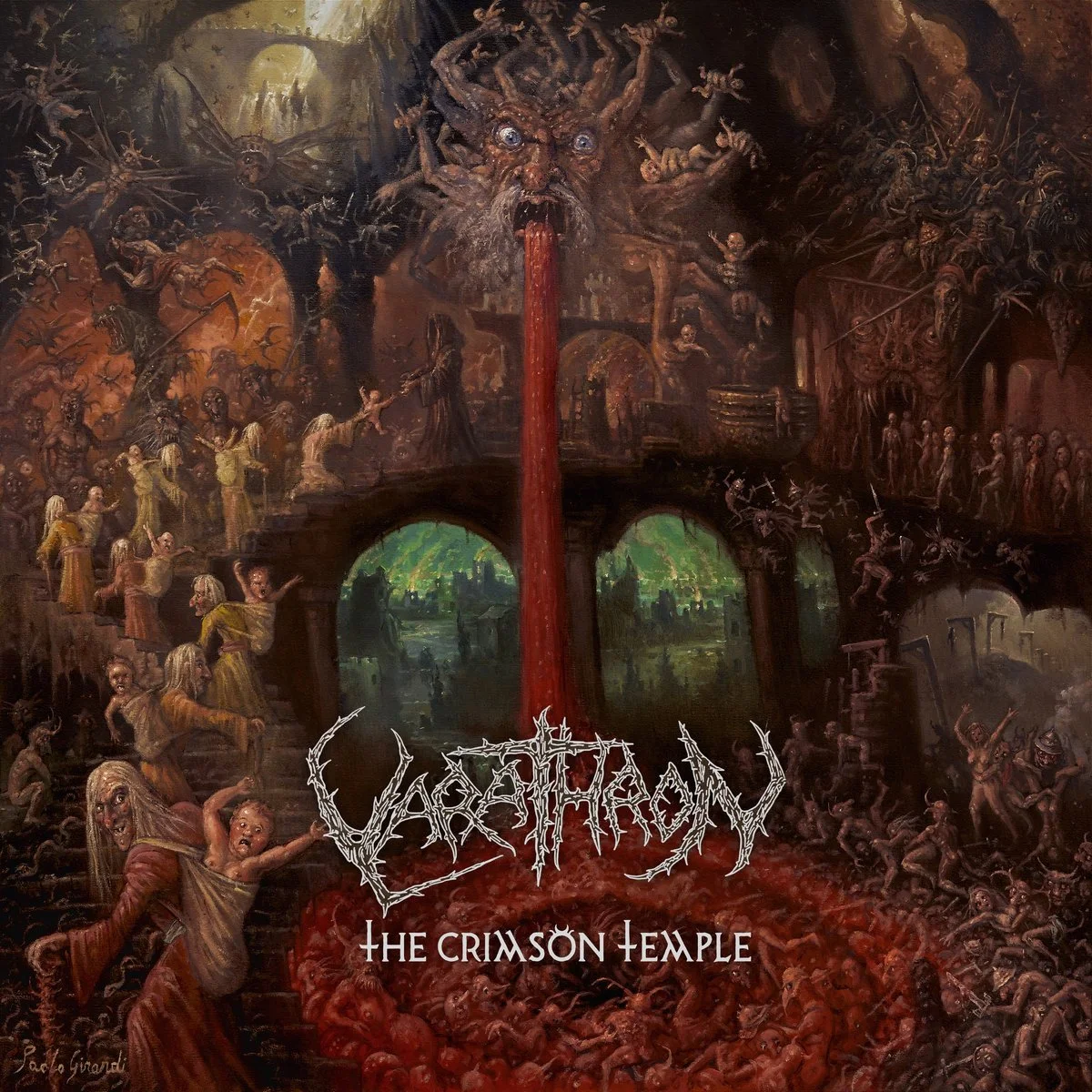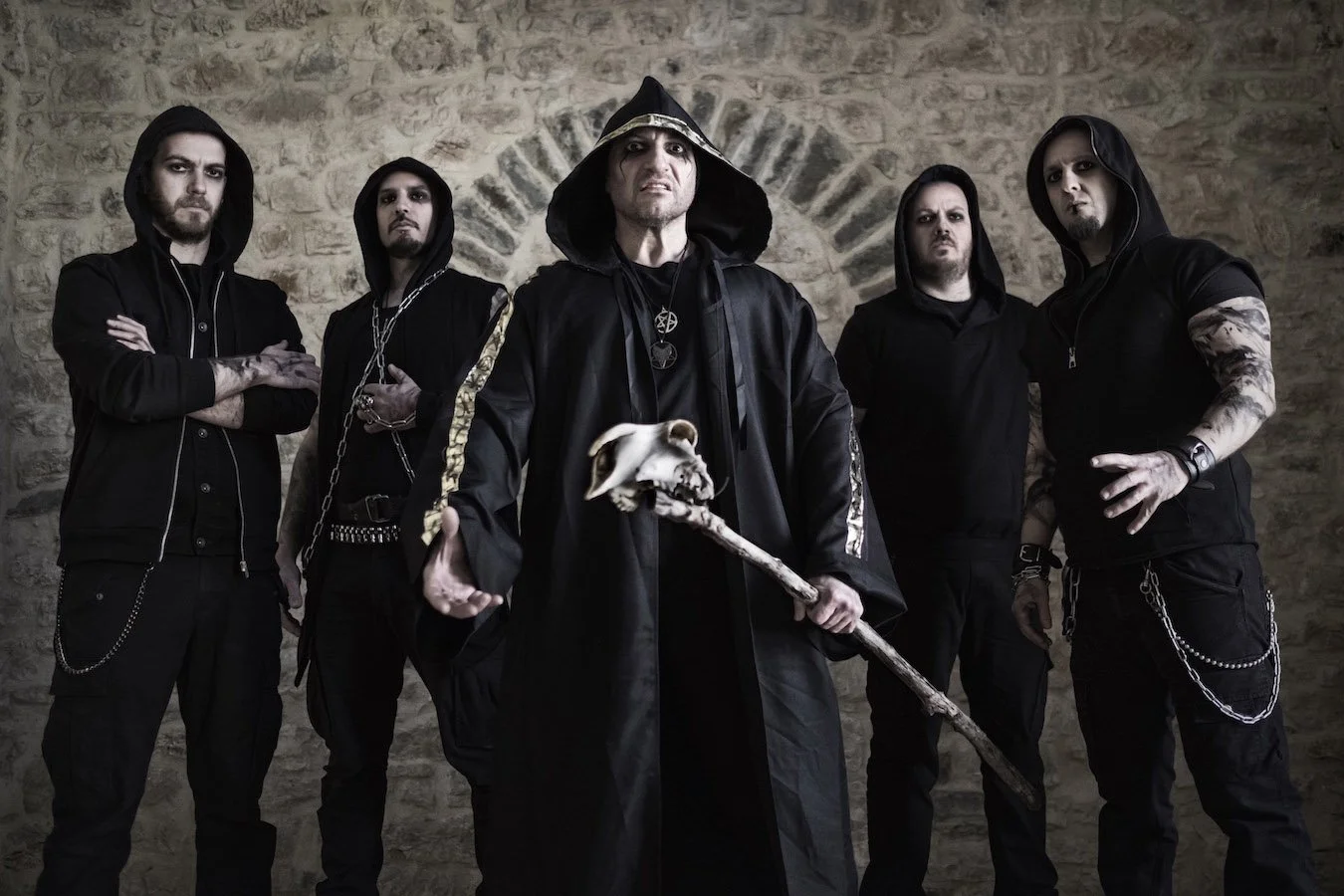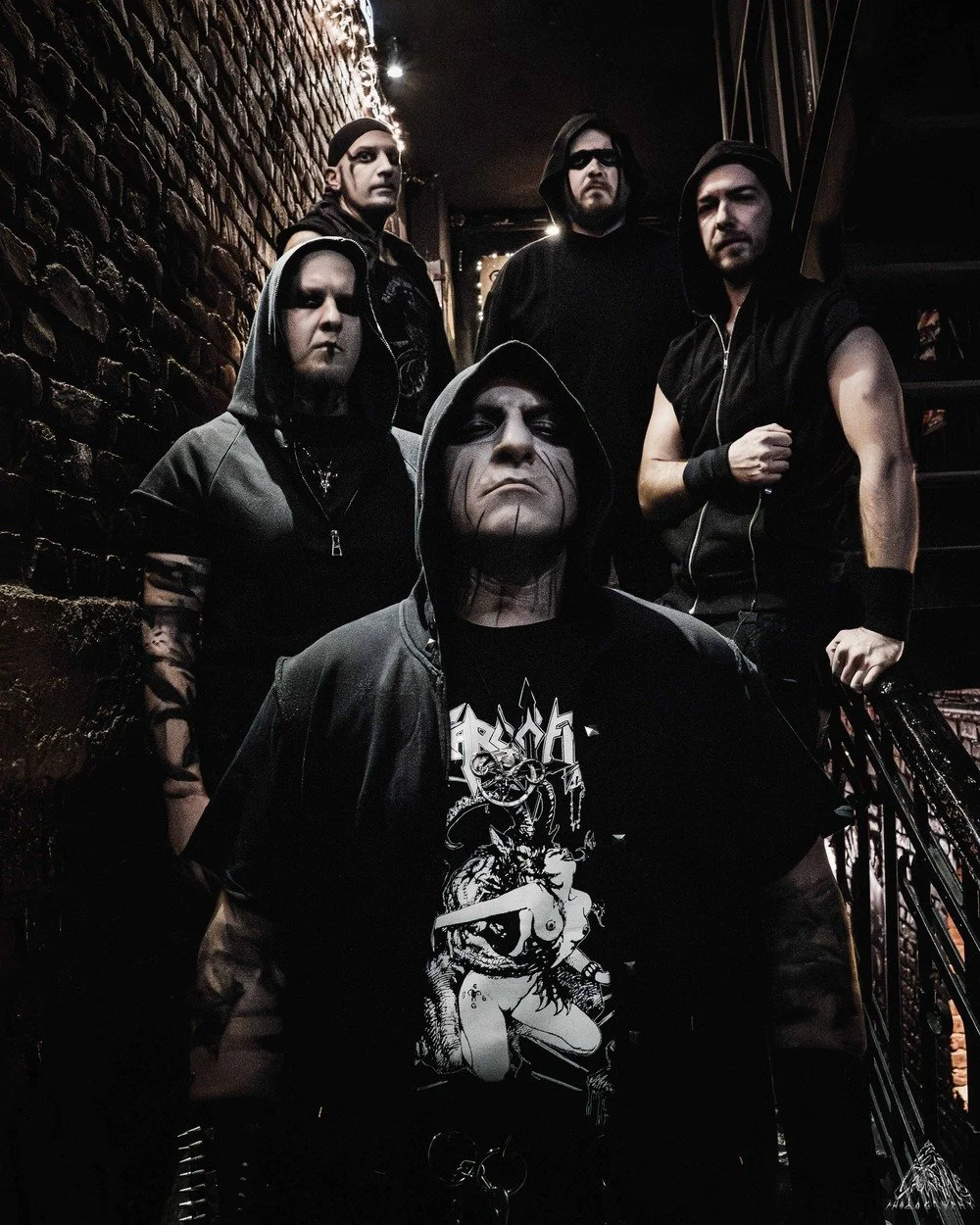
“I’ve always wanted us to stay connected to our roots, and I ask the other members to respect our history.”
VARATHRON
———————————
EXCLUSIVE INTERVIEW (2025)
———————————
Black metal enthusiasts have long followed developments in Greece, a country that has proved itself to be one of the most significant territories in the genre. Varathron are undoubtedly one of the godfathers of this scene, right up there with the likes of Rotting Christ and Necromantia, having formed way back in 1988 and offering early masterpieces such as 1992’s The Everlasting Sins, 1993’s His Majesty at the Swamp and 1995’s Walpurgisnacht. Created by vocalist Stefan Necroabyssious and initially involving musicians from underground entities such as Rotting Christ, Zemial, Agatus, Sound Pollution and Horrified, the band would go on to evolve through numerous line-up changes, with activities slowing in the late 90s for a time.
2004 however, would see Varathron return as a much more stable proposition, presenting a line-up that has remained more or less in place ever since, and going on to release a further five full-length albums, as well as numerous splits and EPs. Perhaps the most notable of these recordings are the last two studio albums, 2018’s Patriarchs of Evil and 2023’s The Crimson Temple, both extremely well-received works that have seen the band pushing their sound into an increasingly intricate, dynamic and epic direction, retaining the aggression and atmosphere despite the more complex songwriting. We caught up with Stefan ahead of the band’s appearance in London at Cosmic Void festival.
Cult Never Dies: It’s been some time since Varathron played the UK – how do you feel about the forthcoming appearance, and do you have any particular thoughts and feelings about visiting these isles, either as a musician or traveller?
“Greetings my friend! Yeah, it’s been a long time. We started playing live pretty late – considering the band’s almost 38 years old – so we never really had the chance to hit the UK much. That’s why this show means a lot to us. We’re fired up and ready to give everything on stage, to honour our supporters and connect with old and new comrades.”
How do you find it to appear at festivals these days? Do you tend to catch any other bands or do you prefer to keep away from the crowds before your performance?
“We’re warm people by nature, so it always feels good to meet and hang out with other bands, friends, and supporters – and whenever we can, we enjoy catching other bands’ sets too. Festivals have a very different vibe compared to regular gigs. Over the years, they’ve become more about the whole experience: the festivities, the chaos, the socialising, the drinking, the activities. The great thing is that a lot of people show up who may not even know the bands, so it’s always a chance to win new supporters. From our side, we always feel an obligation not just to enjoy the moment, but to deliver our best for those who came to see us. That’s why, right before hitting the stage, we try to lock in if possible and stay focused.”
Greek black metal has certainly earned its place in the history books, but the scene itself seems to have constantly evolved, both musically and culturally/socially. As someone who has been involved for a long time, what are your feelings on the current state of things?
“Times have definitely changed. Back in the beginning, we were just a tiny circle of people. There was amazing support between us, but also some intense rivalries here and there. It was all pure passion – a thirst to walk this new path. Getting your hands on a new demo, a fanzine, or even just a letter was so fucking exciting. We were breathing metal and living that lifestyle to the bone. Since Greece was pretty isolated back then, everything felt more intense, and we were starving for knowledge and connection with others who shared the same fire across the world. Of course, nowadays things are different, and I can’t help but get nostalgic sometimes.”
Varathron has maintained almost the same line-up for 20 years – does the band feel very stable at this point? To what extent do the different members contribute in terms of songwriting and other creative decisions?
“We’re like a family. There’s a real bond and trust between us, and that’s why this line-up has been so strong, both live and in the studio. Everything feels natural, easy-going. Everyone knows their role, their powers, their responsibilities. No drama, just freedom and understanding. I take care of the lyrics and the overall concept, but the rest of the guys have full freedom to write and arrange the music however they want. Honestly, we rarely argue – we’re all just here to give our best. I can’t even remember a fight over a song in the last ten years. Sometimes we even just make a song on the spot during rehearsal.”
It’s been a couple of years since the release of your most recent album, The Crimson Temple – having had some time pass since the creative process, how do you feel this album compares to the other works in your discography?
“I love all our albums like they’re my children, but to be completely honest, I think we’ve grown a lot over the years. Both [2018 album] Patriarchs of Evil and The Crimson Temple are fantastic records. We’ve always given our all, but now I feel like we’ve finally reached a point where we can bring our vision to life exactly the way we want, without compromise.”
With such a big discography, how do you go about choosing a setlist for a festival like Cosmic Void?
“For us, the most important thing when choosing a setlist is that the songs sound killer live, and that we represent the band’s whole history. First off, it’s crucial to honour the latest album, so we always include at least three songs from it. We also make sure to play a track from the demos and a couple from the debut, His Majesty at the Swamp, which is historically our most important album. We love Patriarchs of Evil, so one or two songs from that record usually make it in too. The rest of the setlist shifts depending on the festival or just our mood. For Cosmic Void, we’ll put together a pretty balanced set – something for everyone.”
You mention His Majesty at the Swamp – when it comes to creating new material, does the band feel a need to maintain a continuity from early records such as that one or Walpurgisnacht, or would you say you are totally free artistically when composing?
“I’ve always wanted us to stay connected to our roots, and I ask the other members to respect our history. After so many years, and having played almost all of our demos and early albums live, it’s only natural that we’re still inspired by them. At the same time, staying free and exploring new ideas is crucial – it keeps us fresh and true pioneers in our style. I think we’ve got the wisdom now to create new music and ideas, while still being us at the core.”
Interview by Dayal Patterson.
Cosmic Void tickets HERE




